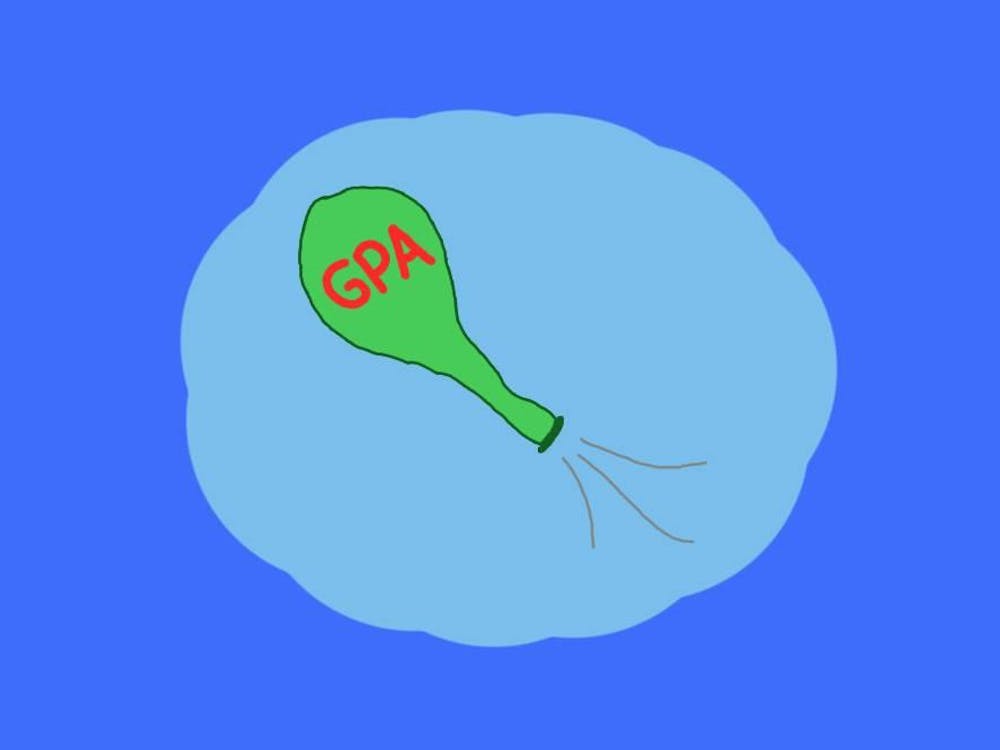THERE'S A BIG hole in the ground, and the first to fill it wins. Now that Sen. John McCain (R-Ariz.) is out of the picture, there are a good 33 percent of self-proclaimed "McCain voters." This is according to a Newsweek poll to which the remaining contenders -- Vice President Al Gore and Texas Gov. George W. Bush (R) -- must appeal if they wish to secure the White House in November.
If the American people can learn one lesson from the so-called McCain insurgency, it's that no amount of politicking and phoniness will capture the hearts and minds of the "McCain voters." So for what it's worth, Al Gore's late coup of John McCain's message is futile. Voters must examine Gore's credibility before they cast votes that potentially could put him in the highest office in the nation.
Recently, Gore has hijacked campaign finance reform, one of McCain's main messages. Having Gore as the campaign finance man is like having a felon for a policeman. Gore has raised an estimated $30 million in soft money, the supposed source of abuses of campaign-finance law. His fundraising mission to a Buddhist temple was in direct violation of existing campaign finance laws, even though he euphemistically called it an outreach visit. When subsequently presented with documentation of the financial nature of the meeting, he claimed to have been unaware. Gore also, in 1996, sat in on meetings concerning campaign contributions of questionable legality, and first claimed to have been absent. Later documents revealed that, in fact, he was present.
Gore claimed, however, that he was not there during the questionable parts because he had consumed a lot of iced tea and had to use the bathroom. Clearly, when it comes to campaign finance reform, Gore is full of doublespeak.
It's easy for Gore to be a reformer now. He's already raised the bulk of his campaign funding and he had a relatively easy primary season after eliminating his opponent Sen. Bill Bradley (D-N.J.) early on.
Those who supported McCain did so because he represented sacrifice. He sacrificed coddling from the GOP establishment because he had a message to convey that ran contrary to the grain of Republican orthodoxy. He sacrificed politics for integrity, delivering nothing but "Straight Talk." That very talk, in the end, secured his defeat after he lambasted Pat Robertson and Jerry Falwell, bastions of the religious establishment. It was ultimate political sacrifice -- self-sacrifice. He traded his shot at the presidency for his belief in a unified, not a sectarian, Republican party.
Gore's plot to absorb McCain's principles is blatantly cheap. And it's just that, a politically calculated plot designed to take him one step closer to political checkmate with Bush. Gore, unlike McCain, has nothing to sacrifice and everything to gain. Swing voters -- McCain voters -- most definitely need to see that distinction.
Gore's absorption of McCain's cause immediately after McCain's departure seems all too transparent. Notwithstanding his dubious actions such as taking contributions in violation of the law and possibly participating in meetings concerning illegal contributions, which are inconsistent with his newfound beliefs, Gore can't overcome how cheaply political his new campaign finance plank is. The same voters who found something right about politics in McCain's style will be able to see that something is awry when Gore cheapens himself for their votes. Gore epitomizes the dirty politics that drove McCain voters in droves to their straight-talking man.
There is no doubt that Bush is a politician too. He's done his share of question waffling, negative campaigning, and so forth. When it comes to picking a candidate who represents the anti-political establishment like McCain did a choice between Bush and Gore is a choice between two evils.
The lesser of the two evils is Bush. While both Bush and Gore seek a political prize, only Gore has recently done things -- like attempting to raise funds at a Buddhist temple -- that call his credibility and character into question. In addition, Gore denied involvement in the 1996 meetings concerning possibly illegal campaign contributions. But when presented with evidence of his role, he wouldn't even take full responsibility and instead resorted to silly explanations. If he applies this same behavior -- admitting errors only when others reveal them -- in the Oval Office, we should fear that he might contribute to the degradation of the office of the presidency as much, if not more, than his counterpart, President Bill Clinton.
On the other hand, Bush's credibility is scarred for not condemning Bob Jones University, a school that calls Catholicism and Mormonism cults and which, until it succumbed to media pressure, forbade interracial relationships. Clearly though, this is a case of mistaken judgment on Bush's part. His half-baked apology was a cheap way to ward off the moral disapproval that he was receiving for not having made a better judgment call. The difference: What Bush did was not illegal, and he made no attempt to cover up his mistake. Gore did both.
McCain voters have it tough. They now have a choice between two candidates who represent the political evil that McCain tried to uproot -- Gore and his twisted talk versus Bush and his hefty campaign purse strings.
Bush has his faults. Gore doesn't mean what he says. For straight-talking McCain followers, that's enough of a reason to put the clothespin on the nose and cast a Bush vote.
(Jeffrey Eisenberg's column appears Mondays in The Cavalier Daily)




